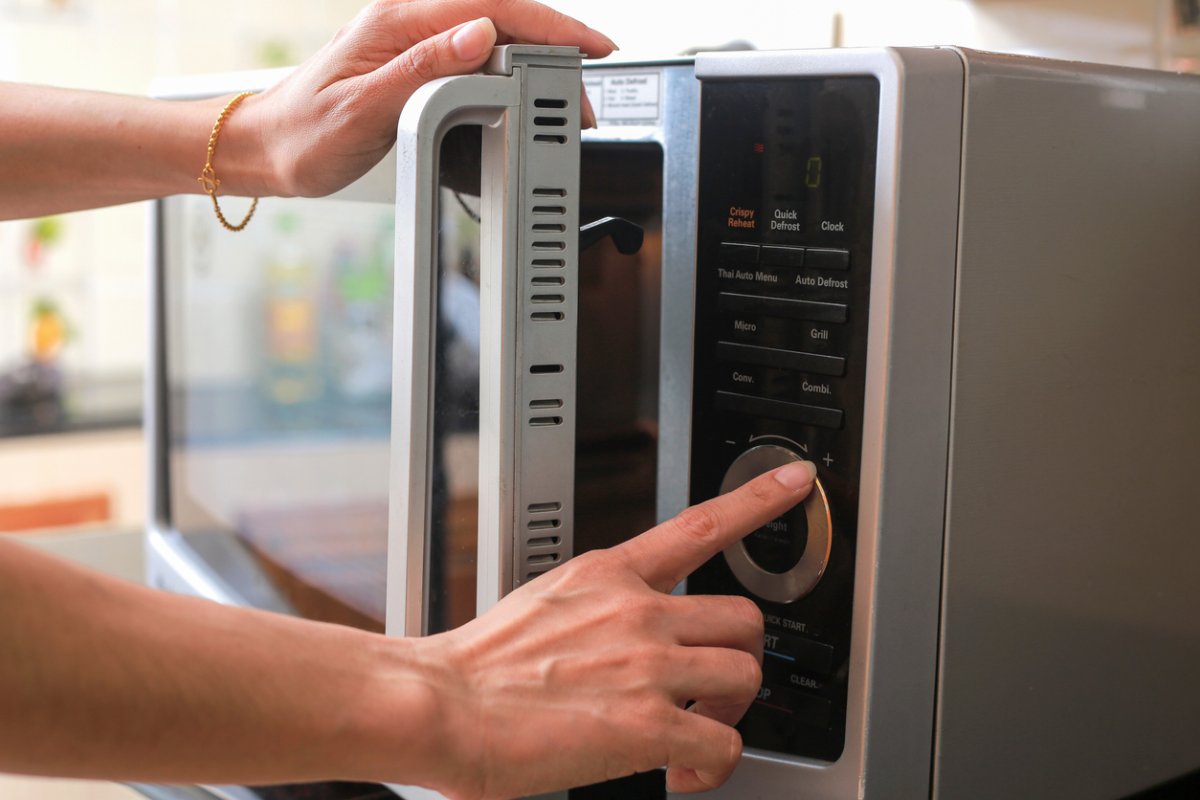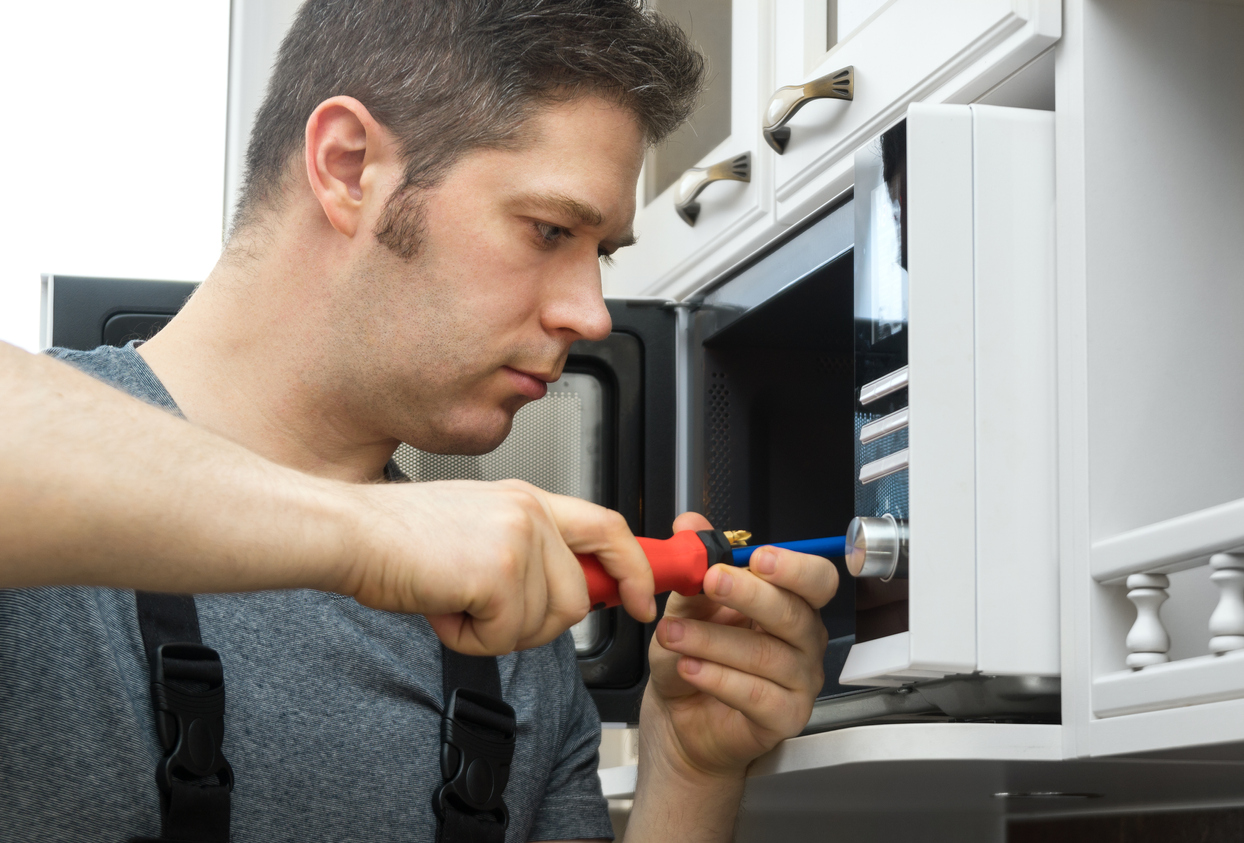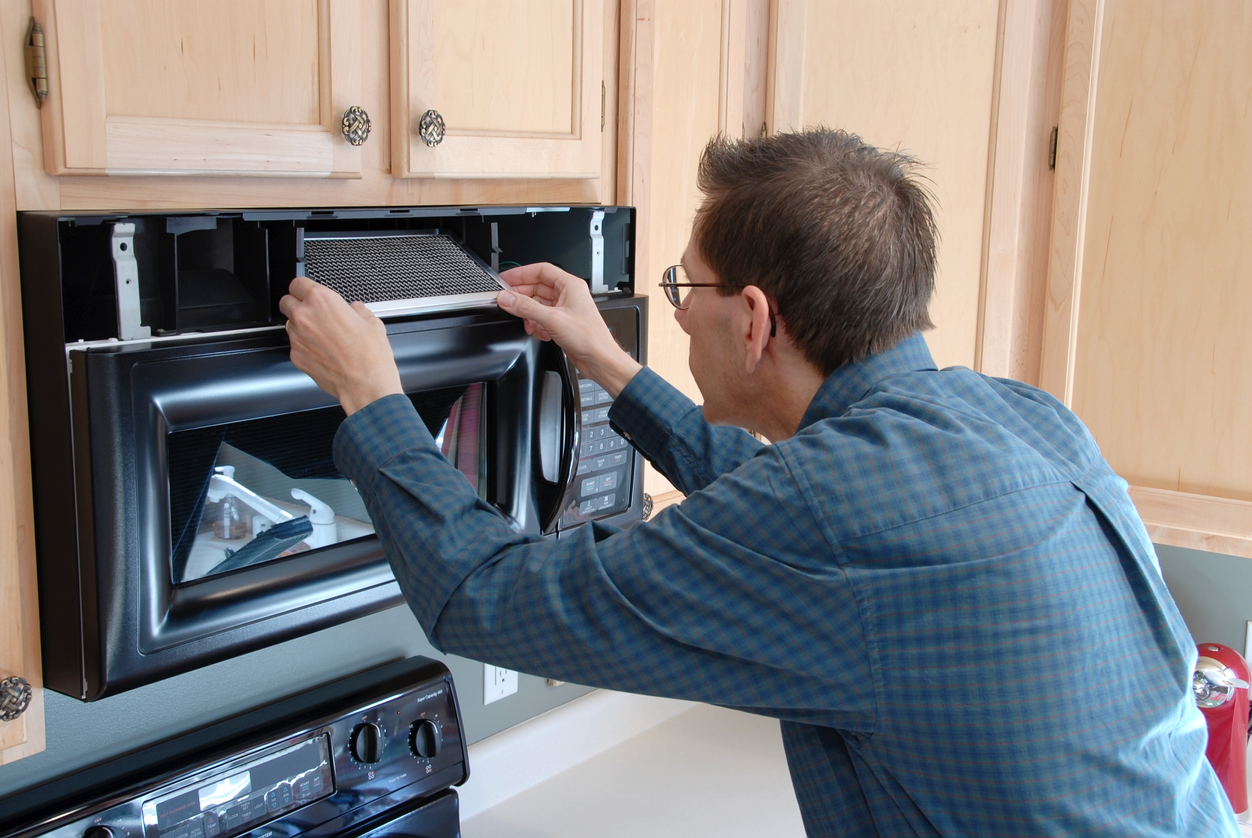

We may earn revenue from the products available on this page and participate in affiliate programs. Learn More ›
Q: I’ve been noticing that after I use the microwave, the fan stays on for minutes after the cook time is over. Why won’t my microwave fan turn off? Is this a problem that I need to fix?
A: Microwaves are an incredibly convenient kitchen appliance, and it can be annoying when the microwave fan turns on by itself with no rhyme or reason. There are some avoidable reasons for a microwave fan that keeps running, but other times, there may be issues with the inner workings of the microwave that need to be addressed when the microwave fan won’t turn off. Even the best built-in microwaves may need to be repaired by an appliance repair technician. For those wondering why a microwave fan won’t go off, some causes include:
- Overusing the microwave
- Microwave thermostat or control board issues
- A kitchen that’s too hot or lacks ventilation
- Clogged air or grease filters
- Issues with the fan motor
The microwave might be overused.
One of the most common reasons for a microwave fan not working properly is that the microwave is being pushed past its limits. Most microwaves have a thermostat inside that switches the fan off when the microwave interior is cool. Microwaves can benefit from a cooling period after use, especially if they’re running for 5 to 10 minutes or longer. Using the microwave for back-to-back heatings for several minutes at a time can make it so that the microwave needs extra time to cool off after use.
The microwave could be overheating from problems with the control board or thermostat.
Microwaves have a thermostat inside to regulate the temperature. This thermostat signals the fan to turn off when the microwave has cooled to an appropriate temperature. If the thermostat is faulty, it might not signal the microwave fan to turn off, even when it is completely cool.

Conversely, there could be a problem with the control board. The control board is the “brain” of the microwave, and it controls the exhaust fan on the microwave. It’s an interior component of the microwave that’s attached to the exterior control panel (the part that you use to input the cook time and press “start”). When a button on the control panel is pressed, it sends an electrical signal to the control board. If there are any faulty connections in the control board, they could keep the microwave fan from turning off or result in a microwave fan that turns on when the door opens.
Another sign that there’s an issue with the thermostat or control board is if the microwave feels like it’s getting hotter than usual, even after a short use. A microwave not heating enough could also be related to the control board or thermostat. These problems are best addressed by an appliance repair technician.
If the kitchen is too hot or the microwave doesn’t have proper ventilation, the microwave may not be able to cool.
If the oven’s been on all day and multiple pots are bubbling away on the stove, the kitchen’s ambient temperature will be higher. This can make it harder for the microwave to cool down after it’s been in use, resulting in a microwave fan that turns on automatically or runs for longer.
It’s also important to consider the microwave’s location in the kitchen. Microwaves can benefit from having small gaps between the back, top, and sides of the appliance and the surrounding wall or cabinets to allow for the microwave air vents to have appropriate airflow.
Some over-the-range microwaves may be mounted too close to the stovetop, so if the stove or oven is on and producing heat, the heat could rise and trigger the fan under the microwave. The International Residential Code recommends that the top of the microwave be 30 inches from the stovetop; however, some manufacturers may have varying installation instructions.
Clogged air or grease filters can keep a microwave fan running.
Over-the-range microwaves typically have two filters: an air filter to reduce odors, and a grease filter to minimize buildup in the exhaust fan. If these filters are dirty, it can cause the microwave to run less efficiently—and cause the fan to run more.

Air filters are often located under the top vent panel. These filters are usually made of mesh or charcoal. The grease filter is usually located on the bottom of the microwave. Both of these filters can be removed and cleaned with soap and water. The grease filter may benefit from hotter water to soften the oil buildup. If the accumulation on either filter is too stubborn to clean, replacements may be necessary.
The fan motor could be malfunctioning.
Another issue that could be at play with a microwave fan that won’t turn off is a faulty fan motor. The fan motor, as the name suggests, is what keeps the fan running. Sometimes a fan motor may be defective. In these cases, an appliance repair technician may be able to repair it. If there’s damage to the fan motor, the part might need to be replaced.
An appliance repair technician can take care of microwave issues.
Homeowners may be able to troubleshoot some microwave problems, like allowing the microwave to cool off after long uses or cleaning the filters. However, the average DIYer may not be able to fix issues with the microwave’s inner workings. When a microwave fan won’t turn off, it’s wise to contact a local appliance repair technician who knows how to repair any malfunctioning parts and can get to the bottom of the problem. The average microwave lasts 7 years, and that lifespan can decrease with heavy use or poor maintenance. An appliance repair technician will know when the microwave can be repaired and when it’s past its prime.
